

CHRISTIAN LEADER

131517

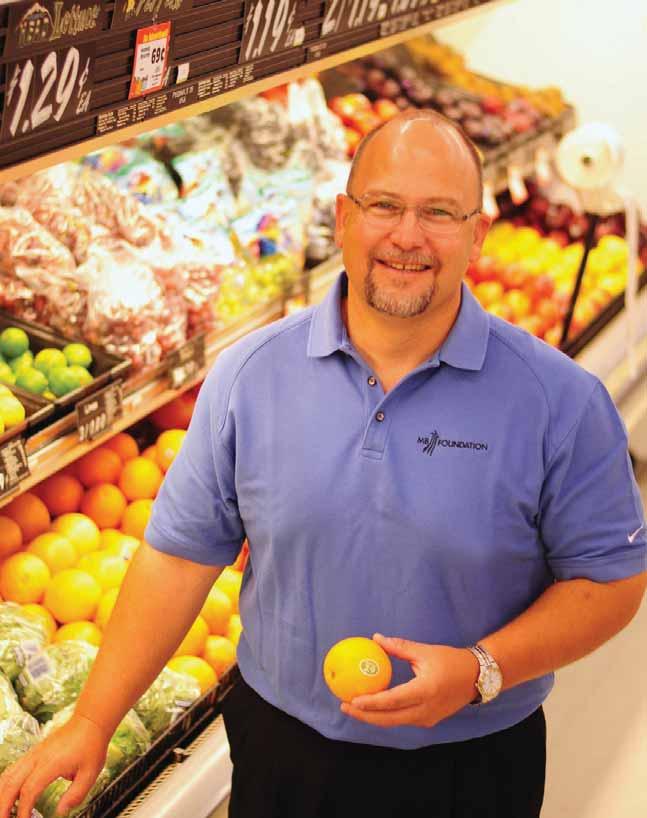



Are Mormons Christians? BFL study conference Coaching pastors












“ “
As parents, we communicate our political beliefs to our children whether we do so intentionally or not.
Throughout the 2012 election campaign we have heard politicians say over and over again that they want a more civil political discourse. But too often calls for civility and acts of incivility show up in the same speech.
Associated Press reporter Allen G. Breed describes it this way: “The fundamental narrative of American politics in recent years contains two powerful threads: First, demand a better discourse among the people who run the country. Second, do everything you can to make sure that better discourse doesn’t take root.”
And it seems to me that civility—and the lack of it—begins at home. I came to that conclusion 12 years ago when our daughter was prevented from using the slipper slide during recess because of her vote in the elementary school mock presidential election. As parents, we communicate our political beliefs to our children whether we do so intentionally or not.
Politics isn’t the only arena in which what we say isn’t necessarily supported by our actions—or the other side of our mouths. Consider what we say about our money and what we do with our money. Writing in this issue, Jon Wiebe, president and CEO of MB Foundation, argues that teaching our children about giving, tithing and generosity requires both words and actions. Wiebe suggests that parents teach and model firstfruits living, and by firstfruits we mean giving our first and our best to God. Read Wiebe’s article, “Get Generous,” on page 10 and check out the resources on the MB Foundation website designed to help congregations teach these principles.
So it seems that if we want to create civil and generous children, we can’t just tell our kids to share with others and to be nice to someone who voted for a different presidential candidate than they did. We have to be openhanded and bighearted ourselves.
The rightness of practicing godly virtues like civility and generosity extends beyond the doors of our homes. For example, a firstfruits lifestyle is good for us as individuals and families, and it’s good for us corporately. So MB Foundation is encouraging and resourcing congregations that want to rework their budgets and stewardship strategies to follow the biblical firstfruits approach.

Connie Faber Editor
And now the new USMB funding strategy asks churches to employ firstfruits giving and to tithe corporately to USMB—to give 2.5 percent of the annual church income to the national budget. But the principle of firstfruits doesn’t stop there. We as U.S. Mennonite Brethren belong to a global family that includes the International Community of Mennonite Brethren and Mennonite World Conference, and these global fellowships ask us to tithe to their ministries. It is no easy thing as followers of Jesus Christ to act with honor and integrity when it comes to things like civility and generosity. If we’re honest, we admit that we find it too easy to attack another person’s political opinions or to care for our own needs before we tithe. But I encourage us to continue striving to be people who mirror God in our words and our deeds.













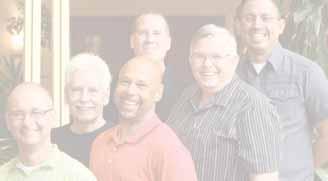


Brian Allen

Before life is over, all of us will face our share of “impossible situations.” In my own life, impossible has come in the form of addiction, of health concerns for my wife during the pregnancy of one of our children, a dream for a sports outreach ministry that just seems to require more resources than is possible and in the salvation of a family member that I desperately desire to see come to know Christ. With some of these, God has already done miracles; others still loom larger than life at times.
“The impossible” in life is just one of the reasons why it is so important to continue to read and meditate on God’s Word. All through the Bible we are reminded that God is the God of the impossible. One of those reminders comes from Luke 1:40-45. We’re told that a man came to Jesus facing the impossible situation of leprosy. Not only would that have included a disease that ravaged his body physically, it would have ravaged him socially and religiously as well. So “impossible” was this situation that healing or curing leprosy was compared in difficulty to raising the dead (2 Kings 5:7).
However, despite the impossible situation this leper faced, he learned some powerful realities concerning Jesus. First, he learned that nothing is impossible for God’s love. When he begged Jesus to make him clean if he was willing, it says in Mark 1:41, “Filled with compassion, Jesus reached out his hand and touched the man.”
In other words, no matter how unclean his state, whether due to his own failures or sins or just the cards that he had been dealt, Jesus loved him, would touch him and be there with him no matter what. Nothing could make him an outcast to Jesus.
Second, he learned that no problem was impossible for Jesus to solve. Leprosy was viewed to be as difficult as raising the dead and yet in response to his request for cleaning we read, “‘I am willing,’ he said. ‘Be clean!’ Immediately the leprosy left him and he was cured.” Apparently, not even death is too difficult for Jesus.
What impossible situation do you face today? Like the leper, do you feel unlovable? Do you feel like the situation you face is impossible, like not even God can handle this one?
God put the story of Jesus healing a leper in the Bible to encourage us that nothing is impossible for Him. He put that story in the Bible so we will trust him and turn to him and so his Word will change the way we think and change the way we pray. That as Mark Batterson says, “The transcript of your prayers would become the script of your life.” May your script be one that overcomes the impossible through the love and power of Jesus.
Brian Allen is lead pastor at Hillsboro (Kan.) MB Church.

“Filled with compassion, Jesus reached out his hand and touched the man.” Mark 1:41a
CHRISTIAN LEADER
October / November 2012
Volume 75 • Number 5
Connie Faber EDITOR
Myra Holmes ASSISTANT EDITOR
Shelley Plett GRAPHIC DESIGNER
Kimberlee Jost COVER PHOTO
The Christian Leader (ISSN 0009-5149) is a gathering place for the people, passions and mission of U.S Mennonite Brethren. The Christian Leader is published bimonthly by the U.S. Conference of Mennonite Brethren Churches. However, the opinions expressed here are not necessarily those of the church as a whole.
COPYRIGHT The articles printed in the Christian Leader are owned by the CL or by the author and may not be reprinted without permission. Unless noted, Scripture quotations are from the New International Version.
READER PARTICIPATION Letters to the editor should be 300 words or less and on one subject. Letters must be signed and include the writer’s city and state. Letters will be edited for clarity, appropriateness and length. Letters will be published, as space allows, unless marked, “Not for publication.” Readers interested in contributing essays for In My Humble Opinion and First Person should contact the editor. Freelance article submissions are welcome; a SASE must accompany articles.
SUBSCRIPTIONS $10 for six issues and $20 for 12 issues ($15, $30 in Canada; all other countries $25 for six issues); $1.50 per copy
CORRESPONDENCE: All correspondence, including subscription questions and address updates, should be addressed to Christian Leader Box 155, 107 N. Main, Hillsboro, KS 67063-0155 Phone: 620.947.5543
E-mail: christianleader@usmb.org
MEMBERSHIP The Christian Leader is a member of the Evangelical Press Association and Meetinghouse, an association of Mennonite and Brethren in Christ editors.
POSTMASTER Send address changes to Christian Leader, Box 155, Hillsboro, KS 67063. Periodicals postage paid at Hillsboro, Kansas.
The Christian Leader is published by

U.S. Conference of MB Churches

Ed Boschman USMB executive director ebed@usmb.org
Words are necessary
Many of us have used this quote attributed to Francis of Assisi: “Preach the gospel at all times. Use words if necessary.” What we usually mean to communicate is that the most important communication plan for the good news is our actions rather than our words. While it sounds good and draws attention to the fact that both words and deeds matter, it just isn’t right.
Duane Litfin points this out in his Christianity Today article, “You Can’t Preach the Gospel With Deeds” (May 2012). Long before reading this article, the tension of word and deed witness has given me occasional spiritual indigestion. From my observation of some personal and corporate witness initiatives in recent years, I have wondered whether the good news of salvation is getting through. Some of you have been tracking with us as we aim to succinctly summarize our USMB core theological beliefs. We have pared the words down to: being Bible believers, being Jesus centered and Spirit led, encouraging a believe-obey relationship with Jesus in both word and action, partnering in believers church communities and living as agents of reconciliation.
Did you notice the italics? This is one of the reasons that the subject has been working me over. In recent years I have heard of Jesus and/or his Spirit revealing himself without human presence or words. But this has mostly happened in the contexts where our missionaries are on assignment among the least reached peoples of the planet. While it is exhilarating to hear of times when the Spirit of Jesus chooses to communicate in miraculous ways his saving grace to someone, this is not the pattern he set in place for his disciples. The mandate was to tell the “Jesus was God atoning for sin and seeking to reconcile people to himself”
story and thereby invite, exhort and persuade people to believe and pursue obedient followership. That story needs words.
Though it is true that we choose to believe in and commit to following Jesus, we know unequivocally that deeds/works play no role in the earning of our salvation (Eph. 2:8-9). We also know that deeds/works are the natural result (Eph. 2:10). So the deeds part of our responsibility is real, but it is not the same as communicating the gospel.
Meeting someone’s need or giving someone a gift is a good thing to do. But it does not clarify or offer the opportunity for the receiver to respond to the call of Jesus to believe and repent of their resistance to the working of the Holy Spirit in their lives and to receive the grace gift of salvation.
Litfin warns that, “conflating the respective roles of word and deed can have serious consequences.” He suggests that it could take us to believing that our doing is enough and that we don’t need to speak. More disconcertingly, Litfin proposes that it could deceive us into thinking that the power of the gospel “lies within us.” That would mean there really can be no true evangelism without embodied action.
Finally Litfin says that confusion of word and deed can land us out of sync with the clear plan revealed by God in the Bible. While we may not agree entirely with Litfin’s observations, it seems to me his words need to be taken seriously. Verbal witness is scripturally clarified as God’s chosen game plan: “It pleased God through the folly of what we preach to save those who believe” (1 Cor. 1:21, ESV).
So, let’s witness at all times by our lives and deeds, and let’s remember that words will always be necessary.
While it is exhilarating to hear of times when the Spirit of Jesus chooses to communicate in miraculous ways his saving grace to someone, this is not the pattern Jesus set in place for his disciples.
Bartel

The kingdom of God is like 22,405 books
The gospel is preached daily in a million ways. God transforms lives and systems and structures and institutions constantly. “Kingdom work” can take on a myriad of forms. One way our community, Watershed, has decided to participate in kingdom work is by serving places largely neglected by our Kansas City community. The Kansas City public schools, we felt, were a good place to start.
A lack of books at home is one reality inner city children encounter. Studies have shown that many children living in poverty have zero books of their own at home. A quick count reveals that our youngest son, Salem, has over 100 board books. That’s not even counting the hundreds of others we have for the older boys.
Having no access to books at home can lead to all kinds of brokenness in the life of a young child. Statistically, illiteracy is inextricably linked to crime, welfare and unemployment. Realizing this, we determined that the simple act of placing a book into the hands of a student could begin that child’s journey towards literacy. Talk about God’s kingdom of love and peace breaking into a city in a tangible way!
We began in 2010 with a book drive for Hartman Elementary and collected around 800 books, enough for each student to take one home and for teachers to better supply their classrooms.
So in 2011, I decided—likely in a moment of insanity—that we should set a goal of gathering 10,000 books. I must admit I was skeptical, but I figured collecting a few thousand would be a wild success. Then something happened.
Quickly the community got involved, allowing us to leave drop boxes in libraries, schools and businesses. Other Mennonite Brethren churches (Zoar MB in Inman, Kan.; Parkview MB in Hillsboro, Kan.; Fairview (Okla.) MB, to name a few) joined the effort. And many in our Watershed community went door-to-door collecting books.
During December and January, we found ourselves quite overwhelmed as we looked across the chapel where Watershed gathers and saw a sea of books in need of sorting, bundling and delivering.
The “something” that happened had to be the Holy Spirit. God’s kingdom vision is much greater than our own.
When the book drive ended, we had collected 22,405 books, over twice our goal and a nearly 3,000 percent increase from the previous year’s effort. We were able to personally deliver one book to every elementary student in the entire Kansas City school district. Thousands more went to schools and teachers and other organizations Watershed supports.
When God uses Christians and non-Christians, churches and businesses to accomplish his work, it is a beautiful sight, an overwhelming experience.
When Jesus came to earth, he inaugurated a new kingdom that will ultimately renew all things. God’s kingdom, once here in fullness, will be one without pain or suffering, poverty or unemployment, addiction or disease, sin or evil, guilt or shame or even illiteracy. The simple act of handing a student a book—a student who may be holding the first book she’s ever owned—is another step in God’s kingdom being made manifest on earth. Until it’s here in full, it is my prayer and hope that our little Watershed community will continue to take baby steps toward making God’s kingdom known in our world.
Paul Bartel is a church planter in Kansas City, Mo., leading the Watershed congregation, a community of people who have covenanted together to live on mission in the Brookside and Waldo neighborhoods.
PATTY DECKER

Paul
Menjares begins tenure as FPU president
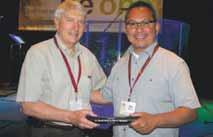
Pete Menjares was inaugurated Sept. 28 as the 11th president of Fresno Pacific University, the Mennonite Brethren university with a main campus in Fresno, Calif. Inauguration week activities included the Friday morning inauguration ceremony followed by a luncheon on the Campus Green that were both open to the public and dinners Thursday and Friday evenings that were by invitation only.
“To say I’m excited is an understatement,” Menjares says. “I believe with all sincerity that there are wonderful times ahead for FPU and for the Valley.”
Menjares received a literal handoff from retiring President D. Merrill Ewert July 28 at the national USMB convention in Omaha, Neb. Ewert, who retired in July after 10 years as FPU president, presented Menjares with a FPU Sunbirds baton inscribed with Hebrews 12:1: “….let us run with endurance the race that is set before us.”
Among his first goals as president, Menjares will start work on a new five-year strategic plan. “Strategic plans are vital to any organization as large and complex as FPU,” Menjares says. “I look forward to bringing together those with a stake in the university to chart how we will carry our mission, vision and values into the future.”
Menjares comes to FPU from Biola University, where over an 18-year career his posts included vice provost for faculty development and academic effectiveness, associate provost for diversity leadership and associate professor of education. Menjares received his doctorate in education: language, literacy and learning from the University of Southern California in 1998. His master of arts in education: teaching and curriculum is from California State University, Dominguez Hills, and his bachelor of arts in religion: pastoral ministries is from Vanguard University.—FPU

Global family celebrates Peace Sunday

Mennonite and Anabaptist congregations around the world celebrated Peace Sunday Sept. 23. Mennonite World Conference initiated Peace Sunday in 2006, to be celebrated on the Sunday nearest to Sept. 21, the date chosen by the United Nations as International Day of Peace. MWC’s Peace Commission prepared suggestions for Scripture readings,
In hopes of instilling in young adults a desire to live missionally, MB Mission, the global mission agency of U.S. and Canadian Mennonite Brethren, is hosting a New Year’s conference for North Americans ages 18-35. Re:TURN will be held Dec. 31-Jan. 1 at Northview Community Church, Abbotsford, BC.
“We want to call young people back to a relationship with Jesus, to walk with him,” said Randy Friesen, MB Mission general director, as he announced the conference to attendees of Conection 2012, the national USMB convention.
The schedule will include speakers, worship, workshops and prayer. While both USMB and the Canadian Conference of MB Churches have blessed the event, planners recognize that the location may deter U.S. attendees, so MB Mission is “very open” to organizing a second conference next year in the U.S., says Sam Dick, MB Mission mobilization coordinator and re:TURN steering committee chair. See www.return2radical.com for event details and registration information.—CL


MCC provides aid in West Africa food crisis
More than 18.7 million people, including 1 million children, are affected by a food and malnutrition crisis in West Africa, according to the United Nations (UN). Mennonite Central Committee (MCC) is providing emergency food assistance in Burkina Faso, Niger and Mali. MCC is a relief, development and peace agency supported by many Mennonite Brethren.
The harvest failed in 2011 and the crisis has been deepening since the start of this year, says Mark Sprunger, MCC area director for West Africa. Referring to UN reports, Sprunger says basic food prices throughout the region have increased dramatically. In Mali, for example, the price of the staple food, millet, is 116 percent higher than the five-year average.
Working through local church development agencies, MCC helps provide food and grain to vulnerable families, strengthens two grain banks that give farmers a local market and supports food-forwork, cash-for-work and other activities. MCC
byTheNumbers

SENTBY the U.S. in 2010. We’re the largest sending country in the world, sending 1 in 4 of the world’s Christian missionaries.
missionaries
SENTTO the U.S. in 2010. We’re the largest receiving country in the world. Many of these are Brazilians working with Brazilian communities in the Northeast.
Source: Reuters
5 minutes with...
Paul Penner
Sitting in the cab of his tractor, Kansas wheat farmer Paul Penner of Hillsboro, Kan. MB Church recently pulled out his cell phone for a Fast Chat interview about his advocacy work in Washington, DC. As a Second Vice President for the National Wheat Growers Association, Penner is helping shape this year’s federal Farm Bill.


How did you get started in advocacy?
When I opened my mouth to offer a suggestion at our Kansas Wheat Growers Association they put me on the board of directors. If you’re not involved in policy, you generally don’t have the right to complain. Now I represent wheat farmers to people in Washington like the Speaker and House and Senate Ag Committee Chairs.
Why should Christians care about the Farm Bill?
Ensuring a safe and reliable food supply is a way for believers to express compassion and concern for people all around the world who rely on the U.S. for sustenance.
How is our system of government working?
Bipartisanship is a dirty word now. The only way a democracy can work is if people are talking to each other and building an atmosphere of trust. I’m dismayed at the way people with extreme views can hold hostage something as vital as the Farm Bill. But for better or worse, our democracy is the best thing in town.

What can the church learn from your experience?
The church needs to be proactive in compassionate ministry. Eighty percent of Farm Bill funding goes to food and nutrition programs. It’s so important that people who are being evangelized are also given the tools for responsible living. Christian business owners need to provide jobs that pay a wage people can actually live on. That shouldn’t just be the government’s job.
Interview by Kathy Heinrichs Wiest
DEBORAH PENNER
TC hires Boettcher
Larry Boettcher, Newton, Kan. has been named the new director of development for Tabor College, effective Aug. 1. Tabor College is the Mennonite Brethren-owned liberal arts college located in Hillsboro, Kan. Boettcher has served as the director of development of the Good Samaritan Society, Lyons, Kan., and the Via Christi Foundation in Wichita, Kan. He is a graduate of Barclay College and has attended the Houston Graduate School of Theology.

FPU BUSINESS FORUM features Burg
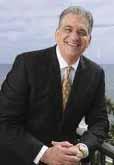
Kyle authors book
Richard Kyle, professor of history and religion at Tabor College, the Mennonite Brethren-owned school located in Hillsboro, Kan., addresses American preoccupation with doomsday theories in Apocalyptic Fever: End-time Prophecies in Modern America. The book, Kyle’s 10th, was released in August by Cascade Books.
Resources reach Syrian refugees

As the violent conflict in Syria escalates, Mennonite Central Committee (MCC) intensifies its efforts to help those affected. As of late August, MCC had shipped 3,447 relief kits, 14,220 hygiene kits, 13,666 blankets, 17,160 school kits and 288 infant care kits to Jordan and Lebanon. MCC’s response also includes distribution of food, medicine and fuel in Homs and Damascus and increased support for disaster preparedness and conflict prevention activities in Lebanon. MCC encourages donations of money (specify “Middle East crisis”; mcc.org/middleeastcrisis) and relief kits (information available at mcc.org/kits/relief). —MCC
John Franz, of North Fresno (Calif.) MB Church, has authored a memoir exploring his life-changing experiences in Congo. Franz taught in the American School of Kinshasa from 1966-1968 with the Mennonite Brethren Christian Service Program to fulfill his alternative service requirement during the Vietnam War. Congo Dawn is published by Outskirts Press and is available from Amazon.com.
Bob Burg is the slated speaker for the annual Business Forum hosted Oct. 24 by Fresno Pacific University (FPU), the MB university in Fresno, Calif. Burg is a highly sought-after speaker and the author of The Go-Giver. This “little story about a powerful business idea” says that shifting focus from getting to giving is the simplest, most fulfilling and most effective path to success in business and in life. For more information and registration, visit www.fpu.edu.—FPU
FPU gains presidential residence

Ted and Joyce Smith, of Fresno, Calif., have donated their home to Fresno Pacific University (FPU), the MB university on the West Coast, to be used as the residence of the FPU president. Pete Menjares and his wife, Virginia, will be the first presidential occupants and intend to continue the Smith’s tradition of hospitality. —FPU
FPU
FPU



Integrate firstfr uits living into your life and watch generosit y grow
Bill and Mary along with their young son, Jack, have settled down to worship the Lord on Sunday morning at their church. When the offering plate is passed by, Bill hastily grabs two $20s out of his billfold and throws them in, while Mary scrambles to find a few quarters or a dollar bill to give Jack for his offering. What values did Bill and Mary just reinforce, or begin to shape, in the life of young Jack?
Generosity. Is it a way of life, a certain dollar amount or an income percentage one gives to church? Are we born to be generous, or is it a trait that can be learned? A recent issue of the Christian Leader referenced a Barna Group 2011 study showing that despite strong levels of spiritual activity during the teen years, six out of 10 twenty-somethings disengage from active participation in the Christian faith during their young adult years. Editor Connie Faber went on to say that, “while we parents are the primary influencers in the spiritual lives of our children, most of us are not actively involved in passing on the faith.”
This is also true when it comes to the intersection of our faith and our finances. Some new studies have found that social factors make a difference in whether people become spenders or savers. Chief among them: the role of parents. I wonder what that says about how we pass along values of giving, tithing and generosity? What are we teaching our kids about giving?
Many of us try to model giving and trust that our children catch on. But I would suggest it takes much more than that. Teaching generosity involves words and action, practice and engagement. Perhaps a fresh way to teach generosity to our children is to dust off the ancient practice of firstfruits and engage our children in practicing and understanding what it truly means to be generous, firstfruits style.
Early in their development, the people of God received instructions from God, delivered by Moses, to practice firstfruits giving. “Firstfruits” means that we give to God from the first and the very best of what we receive. God’s people were asked to bring the first and best offspring of their cattle and flocks and of their crops of vegetables, fruits and grains as an act of worship. Firstfruits giving recognizes that God is the giver of all good gifts.
The potential impact of this concept on the local family and the church is off the charts. According to Proverbs 3:9, firstfruits living has



by JON WIEBE
three components that if taught to our children would be transformational.
Worship. The biblical concept of firstfruits is rooted in the concept of worship. A generous heart is not about filling some duty or obligation handed down by our parents, church or elders. It isn’t a “commandment” that must be complied with in order to gain entrance into heaven. In Proverbs 3:9 we find the most commonly quoted Scripture about firstfruits, “Honor the Lord with your wealth; the firstfruits of all your crops.” To honor the Lord is to ascribe glory and majesty—to worship. Giving generously is first and foremost about worship.
Priorities. The world system is built on get, get, get. Greed, greed, greed. In contrast, the first instruction in Proverbs 3:9 isn’t about how much to give or what to give. It is about an attitude we should have and the right priorities for living. “Honor the Lord with your wealth.” Or as it is translated in the NLT, “Honor God with everything you own.”
This perspective of worshipping the Lord with every financial blessing, everything that we own, is completely contrary to the way of the world. But it gets our priorities in order. Instead of a “get-get mentality,” it helps us develop a perspective on the eternal. Teaching our children to live generous lives that flow from an attitude of worship is a game-changer and it gets our priorities straight. As individuals, firstfruits giving means that the first check we write each month or each week is to go to God’s mission through the church.
Generosity. “Give Him the first and best” (Prov. 3:9b NLT). Of the many methods people use to honor God with their money, firstfruits giving provides the best motivation for a lifetime of giving. We are to give to God of our first and best and manage all the rest in ways that bring glory to him. Our giving should be an act of worship.
Being generous toward God is the most powerful way of using money to bring honor to God. And we give to him of our first and best, not from our leftovers or from our excess. We are to worship God with everything we own. Not with just a fraction of our income. This is not a business transaction. Generosity is an act of love. It is an act of worship.
So what are we parents supposed to do? Deuteronomy 11:18-20 might be useful to give us some insights. Verse 18 says we are to “fix these words of mine in your hearts and minds;
tie them as symbols on your hands and bind them on your foreheads.” Before we can teach and influence others, we must be committing the same principles to our own hearts, minds, hands and foreheads.
For me this means we need to believe it, commit to it and practice it. Are you practicing a firstfruits lifestyle? Are your gifts to God made in an attitude of worship, reflecting a priority on eternity and demonstrating a generous spirit? If not, it will be difficult to teach firstfruits to your children.
So start here. Pray for a new commitment to firstfruits. Evaluate how your income is allocated. Who or what gets your first and best share? How might you change your giving, to make it a firstfruits gift?
Verse 19 encourages us to “teach them to your children, talking about them when you sit at home and when you walk along the road, when you lie down and when you get up.” Teaching our children to practice a firstfruits lifestyle will require modeling, instruction, reinforcement and as I stated earlier, practicing what we preach!
Firstfruits may be reinforced on Sunday morning, at the store, when spending decisions are made, as we plan our vacations, at Christmas and when allowances are doled out. Pretty much any time our lives intersect with money, we have the opportunity to reinforce the principles of worship, priorities and generosity (i.e. firstfruits living).
Finally, Deuteronomy 11:20 says to “write them down on the doorframes of your houses and on your gates.” Firstfruits is more than a gift, it is a lifestyle. Making a commitment to teaching your children firstfruits will impact every area of your life. It’s a whole-life commitment because it affects our whole life!
Chip Ingram has said that “if you never teach about stewardship and generosity, not just the giving part, but money in general… people will never mature. They’ll never grow. God will never use them.” Let’s help our children grow and mature to be used fully by God.
Teaching our children to live a firstfruits lifestyle teaches them to live a life of worship. It teaches them to have their priorities straight and to properly reflect those priorities in their finances. Lastly, it teaches them to live a generous lifestyle. Honestly, which one of us wouldn’t want our children to learn those values?
Jon C. Wiebe, president and CEO of MB Foundation, considers himself to be a stewardship evangelist. MB Foundation is the USMB stewardship ministry.

Use this discussion guide, among the resources available from MB Foundation, to talk about firstfruits living.
■ Share stories about the best gift you’ve ever received. What made it so special?
■ Read Genesis 4:1-8. Why did God favor Abel’s offering over Cain’s? What made Abel’s offering special?
■ Read Proverbs 3:9 and other verses from the First Fruits References (www.mbfoundation.com/firstfruits) What does it mean today to honor the Lord with the firstfruits of all our crops? What changes do I need to make in order to reflect a firstfruits giving lifestyle?
■ Today, Christian families give an average of 2 to 3.5 percent to their income to charities. Does this statistic surprise you? Do you think most of the evidence is of giving out of our “first and best” or do you think most of that giving is from our leftovers? Does our gift look more like Cain’s or Abel’s?
■ In the average church, 30 to 50 percent of members and regular attendees do not give—ever. Why do you think that is so?
■ How might we encourage each other to make our giving an act of worship from our first and best?
■ What do you need to change about your giving to make it more of a firstfruits gift?

KIMBERLEE
JOST
by CORY ANDERSON
Christians? Christians? Are Mormons
The answer lies in their beliefs about God, Jesus and salvation


Are Mormons Christians? This question is relevant today.
■ As we approach the presidential election there are questions over presidential candidate Mitt Romney’s Mormon faith. Some wonder if Mormonism is just another Christian denomination.
■ TV pastor and author Joel Osteen, who wields significant influence among some Christians, has stated that The Church of Jesus Christ of Latter-day Saints (LDS Church) and Mormons like Mitt Romney are Christians because they sincerely claim to be Christians (CNN interview, April 24, 2012.)
■ Richard Mouw, former President of Fuller Theological Seminary, writes that Mormonism should not be referred to as a cult (Christianity Today, July 25, 2012).
For these reasons, understanding what Mormons believe is important. Before we delve further into the topic, there are two things to consider.
While the LDS Church uses the title Christian and shares other similar words and phrases with evangelicals, Mormons define these words and phrases differently than we do. Just because someone claims to be Christian and uses Christian terms does not make them Christian.
It is also essential to treat every LDS member individually and to not make assumptions about what they believe. We should never assume the average LDS member knows, understands and believes everything its church officially teaches. However, even though a person does not believe in official LDS doctrine, it does not mean they get the gospel correct and can be classified as a Christian.
With these considerations in mind, I offer three reasons why Mormons are not Christians.
Reason 1: The LDS Church has a false view of the Godhead. The LDS Church believes in the Father, Son and Holy Spirit, but rejects the doctrine of the Trinity for a belief known as Tritheism (the belief in three separate gods).
This belief is based upon the alleged First Vision of Joseph Smith who claimed to see the Father and Son as two separate personages. While Mormons claim to believe in the Godhead and speak of God being one, they believe the Godhead is one in purpose or function but not in being.
In contrast, the Bible teaches that there is one God (Deut. 6:4; Isa. 43:10-11) who eternally exists in three persons (Father, Son and Spirit). These persons are called God (John 20:28; Acts 5:1-5; 2 Pet. 1:17), are spoken of as co-eternal (Ps. 90:2; John 8:58), co-existent (Matt. 3:16-17) and coequal (John 5:18; Phil. 2:6).
In addition to their rejection of the Trinity, the LDS Church believes that the Father was once a man who was later exalted to become God.
Lorenzo Snow, the fifth president and prophet of the church, coined this popular couplet: “As man is, God once was, and as God is, man may become.”
For the LDS Church, God did not exist from all eternity as God; he was once a man who became God. God is an exalted man who according to Doctrine and Covenants 130:22 still has “a body of flesh and bones as tangible as man’s.” Based upon this couplet, if a man is worthy, he also may become a god, just like his Heavenly Father did.
Reason 2: The LDS Church has a false view of Jesus. While the LDS Church makes much of its belief in Jesus, the real issue is what they believe about Jesus. In 2 Corinthians 11:4 the Apostle Paul makes it clear that there are some who believe in a different Jesus than the one he preached.
So what does the LDS Church teach about Jesus? As we have seen, they do not believe Jesus is the second person of the Trinity. They also believe the Father is Elohim (God) and Jesus is Jehovah (LORD) of the Old Testament. So the LDS Church clearly believes in polytheism even though the Bible makes it clear that there is only one God (Deut. 6:4; Isa. 43:10-11).
Third, the LDS Church believes that Jesus is literally the “firstborn” son of heavenly parents. Heavenly Father and heavenly Mother, exalted human beings who still retain their physical bodies, procreated to create Jesus as their literal firstborn son. Millions of other spirit children were born after Jesus, including Lucifer who later turned against Heavenly Father.
Finally, the LDS Church believes that Jesus is also the “only begotten according to the flesh,” which means that Heavenly Father had some sort of intimate relations with Mary so that Jesus is literally begotten by Heavenly Father and Mary.
What do we make of these LDS doctrines concerning Jesus? While the Bible speaks of Jesus being the firstborn (Col. 1:15), the context indicates that Jesus is not created but is the creator and preeminent one over all creation (Col. 1:15-18).
In a similar manner, the New Testament speaks of Jesus as the “only begotten,” but he is never said to be the only begotten according to the flesh. The words “only begotten” are better understood as a reference to Jesus being the unique one and only son, as in the case of Isaac (Heb. 11:17-18) and David (Ps. 89:27), who were not literally the only begotten or the firstborn sons, yet they were given the status and rights of only begotten and firstborn.
The LDS Church has taken New Testament language concerning Jesus and twisted it by redefining the meaning of words (2 Pet. 3:14-16). The result is belief in a false Jesus who cannot save.
Reason 3: The LDS Church has a false view of the gospel. In order to be a Christian,
one must have a clear understanding of the gospel (Gal.1:6-9). So what does the LDS Church teach about the gospel? Two statements from the LDS Church help to explain their view.
First, Article 4 in the LDS Articles of Faith states: “We believe that the first principles and ordinances of the Gospel are: first, Faith in the Lord Jesus Christ; second, Repentance; third, Baptism by immersion for the remission of sins; fourth, Laying on of hands for the gift of the Holy Ghost.” Clearly, the LDS Church believes in baptismal regeneration. In contrast, both Jesus and the Apostle Paul made a distinction between the gospel and baptism (Luke 23:43; 1 Cor. 1:17; 15:1-7).
Second, in the LDS Articles of Faith, Article 3 states: “We believe that through the Atonement of Christ, all mankind may be saved, by obedience to the laws and ordinances of the Gospel.” In making such a statement, the LDS Church declares that the atonement of Christ is not sufficient in itself. For the LDS Church salvation is not based purely on works, it also includes faith and grace as 2 Nephi 25:23 in the Book of Mormon says: “For we labor diligently to write, to persuade our children, and also our brethren, to believe in Christ, and to be reconciled to God; for we know that it is by grace that we are saved, after all we can do.” While the LDS Church believes in grace and faith, they also believe that we need to do all we can do to be saved.
The problem with this view is that Scripture teaches we are saved by faith alone in Christ alone (John 3:16; Acts 15:1-11; Rom. 4:1-12; Gal. 2:15-16; Eph. 2:8-10; Titus 3:4-7). When we come to Christ for salvation the result of conversion is a life of works, but works cannot save (Eph. 2:10). To add any works to the gospel is to distort the gospel resulting in God’s judgment (Gal. 1:6-9).
In conclusion, Mormons are not Christians given that the LDS Church has a different God, Jesus and gospel than that which is taught in the Word of God. As Christians, our dialogues with our LDS neighbors and friends should be full of grace and truth (John 1:14; Eph. 4:15), while at the same time asking them for clarification about their beliefs. Let us never assume they believe the same as we do just because some of their language sounds Christian. As believers we have a mission to reach every Mormon with the true gospel and pray that they might experience salvation in Jesus Christ alone.
Cory Anderson is lead pastor at Shadow Mountain


Time for a FAMILY TALK
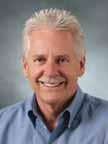





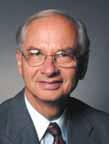
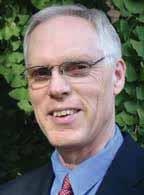
Study conference asks how we follow the Prince of Peace in the real world
U.S. Mennonite Brethren are invited to gather Jan. 24-26 in Phoenix, Ariz., to study, pray and talk together about Articles 12 (Society and State) and 13 (Love and Nonresistance) of the MB Confession of Faith. In preparation for this event, Christian Leader editor Connie Faber hosted a telephone conversation with three USMB leaders about our Confession of Faith and the circumstances that prompted this study conference.
Ed Boschman is the USMB executive director and a member of the national Board of Faith and Life (BFL). Larry Nikkel, President Emeritus of Tabor College and former president and CEO of Mennonite Health Services, chairs the BFL. Lynn Jost, Fresno Pacific Biblical Seminary dean, chaired the General Conference of MB Churches (U.S. and Canada) BFL and its Confession of Faith Task Force when the Confession of Faith was revised in 1999. Jost also served on the International Community of Mennonite Brethren task force that published an international Confession of Faith in 2003.
CL: Why is this study conference focused on Articles 12 and 13?
LN: We’ve known for a long time that we do not have a consensus around Article 13 (Peace and Nonresistance), and because we don’t have consensus we don’t really have unity. We’ve probably never had the sense of unity on this issue that some may think that we’ve had. Two years ago the Board of Faith and Life began looking at where we are on this issue, and we are all over the map.
EB: From a pastoral point of view, these variations among us sometimes create tensions and have the potential to be divisive. We have a reality that needs to be talked through so that we can move to a place (of agreement) that will give us the kind of authenticity that is important to us.
LJ: We’re a historic peace church, confessing that allegiance to Jesus trumps national allegiance and that Jesus teaches us to live in peace. And yet we’ve always had differences of opinion. Now our leaders have called us together to understand what the Bible says and to encourage us to live out our convictions.
CL: How did these differences come about?
LN: Part of what has happened—and I’ve personally been a part of it—is that when we started new churches and tried to reach out to our communities, we were just delighted that people from different persuasions wanted to be a part of our congregations.
EB: As we have reached out to our neighbors and the people in our communities, some of them have come to faith and joined our churches. Among them are police officers and military personnel.
LN: In most of our churches we didn’t hide this element of our Confession, but as we welcomed people from different theological backgrounds we did not force them to support our Confession of Faith in its totality.
The same thing applied to our pastors. I don’t know how hard we’ve all worked to call pastors who were Anabaptist in their orientation, but I think there weren’t always

Ed Boschman
Larry Nikkel
Lynn Jost
enough to go around. And in some cases I think we were more interested in pastors of the evangelical stripe.
If it is possible, as far as it depends on you, live at peace with everyone. — Romans 12:18
LJ: My sense is that our differences are a product of inadequate leadership, and I think that I’m old enough to say that since I’ve been in leadership for a while. What I remember saying to new church members and especially to new pastors is that you don’t have to agree with the Confession but you agree not to teach against it and to be open to learning because this is what our church believes.
The current BFL is working very hard to reverse the trend of inadequate orientation and accountability and I applaud that.
EB: I would agree with Lynn’s assessment. There certainly was not a stringent expectation through the process of credentialing for incoming pastoral staff that said you must clearly commit yourself to every nuance of our Confession of Faith.
CL: What is your greatest hope for the study conference?
LJ: What I really want is for people to come away with a strong commitment that Jesus is the Prince of Peace and to leave with a growing recognition that reconciliation is at the heart of what God wants to see happen; it’s not a tangent. I’d like to see that kind of commitment. I think that very well could happen.
LN: I absolutely support that. My hope is more of a process thing than anything else. What I really want is for people to come with a soft heart. To come with as much commitment to understanding as there is a commitment to being understood. Most people will come already knowing what they believe and why. My fear is that people will come trying to win the day for their viewpoint instead of really listening hard to others’ viewpoints.
EB: My greatest hope is that we still stay absolutely committed to what the Bible says and that we will allow the Bible to speak its truth to us with open hearts and minds.
My second hope is that we recognize that clearly committed Bible students and followers of Jesus have various views about how a commitment to peace works itself out in the real world. We don’t renegotiate whether we are followers of Jesus and whether he has called us to be peacemakers; I totally agree with Lynn. But there are application issues we have to talk about.
CL: Are significant differences of opinion on an article in our Confession of Faith an indication that we are a healthy denomination or an unhealthy one?
LN: Differing opinions are not indicative of health or sickness. An indicator of denominational health is what we do with these differences. That’s, I think, why we’re doing this study conference. We have said that if we are going to be a family we have to talk. I hope that we can do this in a way that demonstrates strength and health and a commitment to hearing and understanding each other.
EB: This is an incisive question. It gets to whether this one specific topic is the absolute non-negotiable core of what it means to follow Jesus or not. Are there some articles in our Confession of Faith about which we will not allow divergence or significant difference of opinion and others where we would? That discussion is not simple.
CL: It has been said that it is helpful to think about various positions on peace and nonresistance as a continuum; that there are points along the line on which we all agree. Do you agree with that picture?
LJ: My seminary colleague, Tim Geddert, asks a question in one of his classes something like this: At what point do you believe that the use of force is consistent with faithfulness to the gospel of Jesus? If the continuum model works, we all have a point at which we’d exercise force—but maybe not violent force.
LN: I believe in the continuum idea. During the Vietnam War, a lot of people thought the war was immoral, but they drew the line at different spots along that continuum. Some people registered as combatants, some as noncombatants and some didn’t register at all. Some withheld a portion of their taxes and some drew the line at paying taxes at all.
We’ve focused on the contentious point of taking up arms to the extent that we’ve done a poor job of teaching, preaching and living the rest of it. One of the things I hope comes out of this study conference is that we bring into clear focus the whole continuum of what it means to be lovers and seekers of peace.
USMB pastors and church leaders are especially invited to attend the study conference, says BFL Chair Larry Nikkel, who extends the invitation beyond just this group. “If you’re interested in this, we’re interested in you coming.” Registration information is available online at www.usmb.org/2013-study-conference. Registration and hotel reservations are due Jan. 11.
Coaching pastors
New coaching team adds value to healthy church game plan
The logic is simple: Good coaching leads to a winning team. So in an effort to build a winning team, USMB and Mission USA are offering a new resource for pastors and leaders.
“If we can truly help our pastors—help them to be healthier, help them to achieve their dreams and their goals and the vision God has given them—our churches are going to be healthier,” says Don Morris, director of Mission USA, the church health and church planting arm of USMB.
LEAD Coaching will offer personal, one-on-one coaching to equip leaders and help them achieve their goals. Jeff Nikkel, pastor of Trailhead Church, Centennial, Colo., will serve as “head coach.”
Mission USA’s church health program already includes a number of resources to enhance the ministry capacity of local churches, like LEAD ONE, daylong regional events for leadership education and development, and LEAD Labs, one- to two-hour church growth seminars for leadership teams.
“Hopefully, we’re putting together a package of leadership tools that can really make a difference for our pastors,” Morris says, adding that the personal element of coaching will add the most value of all.
Coaching isn’t a new concept. Businesses and ministries alike are increasingly turning to this one-on-one, goal-oriented model to equip leaders and achieve goals.
Both Nikkel and Morris tend to define coaching by
what it is not. It is not counseling, which aims to root out and heal past brokenness. It is not mentoring, in which a leader takes a beginner under wing. Nor is it consulting, in which an expert gives advice or lists next steps to success.
While coaching can include aspects of all these, a good coach is first a listener, who asks the right questions—sometimes the tough questions—to help evaluate and refine goals, then provides accountability to help achieve those goals.
“Essentially, coaching is a kind of relational approach to ministry that is ideal for growth and life transformation,” Nikkel says.
In a typical coaching relationship, coach and client meet every other week to discuss progress and set new action steps. Mission USA has chosen Ministry Coaching International (MCI) as the model for LEAD Coaching. MCI was established in 2000 specifically to serve ministry leaders using a system that Morris calls “very proven, very effective.”
The MCI system focuses on “The Core Four”: personal life plan, ministry vision, ministry plan and priority management. “We believe sustainable progress toward life and leadership excellence can be had with focused and non-deviating commitment in these four areas,” says the MCI website.
LEAD Coaching will offer a fifth component: soul care. “Soul care is just caring for the heart and soul of
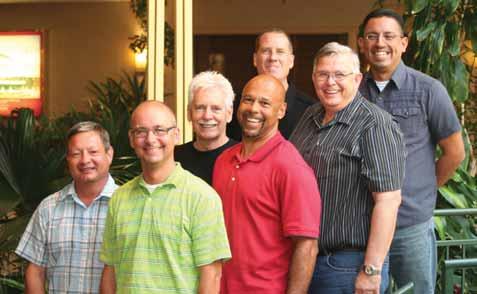
The seven USMB leaders who are participating in the LEAD Coaching met together in Omaha, Neb., prior to the national biennial delegate convention. Coaches include (left to right) Don Morris, Jeff Nikkel, Ed Boschman, Terry Hunt, Gary Wall, Rick Eshbaugh and Aaron Hernandez.
the client,” Nikkel says, “reminding them who they are in Jesus, constantly pointing them back to Jesus.”
Accordingly, LEAD Coaching sessions will be extended from MCI’s 30-45 minutes to up to an hour to allow time to discuss heart issues. Morris says that, because of the weight of high visibility and high expectations, many pastors and church leaders simply don’t have someone they can talk to about those deeper concerns or dreams.
“That’s part of living in the fish bowl,” he says.
Both Nikkel and Morris have experienced coaching firsthand: Morris has been coached through MCI for about a year. Nikkel has experience both as a client and as a coach.
“I’ve found it really life-giving,” he says.
Chad Stoner, church planting pastor of Stony Brook Church, Millard, Neb., has been coached by Nikkel. In the Central District Conference, where Stony Brook is located, care for the church planter is a must; coaching is required at least during the first stages of planting. Through several recommendations, Stoner was matched with Nikkel, and they’ve been working together as coach and client for 1 1⁄2 to two years.
“Jeff has been a great gift to me,” Stoner says. Coaching has helped Stoner understand his own heart, sometimes bringing to light a disconnect between what he says is priority and his actions.
“That’s hard,” Stoner admits, but also necessary. “It’s from the heart that our whole ministry springs. If the heart is not well, the ministry will suffer,” he says.
Furthermore, Stoner says the Stony Brook congregation has benefited from his coaching. He has become calmer, more focused on what’s important and more able to “pour out” for his congregation.
“When I’m not consumed with the wrong stuff, I have love to give,” Stoner says.
Nikkel and Morris believe that, indeed, congregations will benefit as their leaders take advantage of this resource. Morris says, “Our churches are hopefully going to experience so much more as our pastors are healthier.” He hopes that the value will be so obvious that churches will invest in coaching on behalf of their pastor.
“Churches are the front lines of ministry,” Nikkel says. “We’ve got to equip the ones on the
front lines. What better way than to care for the pastors?”
As head coach, Nikkel will shape and coordinate LEAD Coaching, oversee assessment and training of coaches and help match coaches with those who wish to be coached. He will also coach up to eight clients, more than will be expected of other trained coaches.
The Trailhead Church leadership is releasing Nikkel one day per week to invest in coaching. Nikkel says the agreement fits well with Trailhead’s desire to give away a greater percentage of offerings—which could be accomplished by a reduction in pastoral salary—and overlaps with an increasing interest at Trailhead in a one-on-one discipleship model similar to coaching.
In addition to Nikkel, six other USMB leaders have been trained through MCI as coaches: Ed Boschman, USMB executive director; Don Morris, Mission USA; Rick Eshbaugh, pastor at Harvey (ND) MB Church; Terry Hunt, district minister for North Carolina District Conference; Aaron Hernandez, pastor of La Grulla MB Church, Grulla, Texas; and Gary Wall, district minister for Pacific District Conference.
Coaching is offered to USMB pastors and leaders at a significantly reduced rate; limited scholarships are available. USMB and district staff will not receive remuneration for coaching; those fees will feed a fund for training and scholarships. Nikkel and non-staff coaches will receive remuneration.
Because it’s prudent for coaches to be the same gender as the client, USMB is working toward training female coaches so that female leaders may also benefit from this resource.
Those interested in being coached may contact Nikkel at jeff@trailheadchurch.org for more information. Morris notes that space will be limited until more coaches are trained, which may result in a waiting list, “but currently, we have some spots open.”
Chad Stoner says hesitant leaders shouldn’t let fear stand in the way. “I would encourage pastors and church planters to consider this opportunity to have someone step in and walk with them in this unique way,” he says. “There’s the possibility for healing and transformation of heart.”
Myra Holmes
Grateful to God
LAMB celebrates 75 years of ministry in Texas
In the fall of 1936, a group of mostly-white Mennonite Brethren with Germansounding names from the Midwest agreed together to take the gospel to the Spanish-speaking, mostly-Catholic people of the Rio Grande Valley in Texas.
This was “the most heroic step of faith ever undertaken” by the Southern District Conference (SDC), a district which then consisted of only 17 churches, most of them small, writes Anna Hiebert Esau in What God Has Done: The Story of the Latin American Mennonite Brethren Conference.
By 1937, the work in South Texas had begun, and next month the Latin American Mennonite Brethren (LAMB) district will celebrate 75 years of ministry. The anniversary celebration is scheduled for Nov. 23 at an event center in Penitas, Texas. The speaker will be Josue Contreras, currently pastor at La Joya (Texas) MB Church.
Elizabeth Tagle, LAMB district board member and organizer of the 75th anniversary celebration, says, “We are grateful to the Southern District for embarking on that adventure wholeheartedly and to the missionaries who believed that—in spite of resistance and many hardships—all deserve the opportunity to hear the Word of God. But most of all, we are grateful to God!”
The story really goes back much further than 75 years. In her book, Esau points back to the prayers of two “sin-hardened” men in Los Ebanos, Texas, and a few other scattered believers in the area. “God heard those sighs and prayers,” she writes. Meanwhile, a Mennonite Brethren preacher by the name of Peter E. Penner championed outreach to the Spanish-speaking people in South Texas, preparing a district to send workers, and God worked in the hearts of a young couple by the name of Harry and Sarah Neufeld, giving them a burden for Latin American people.
These prayers and preparations converged in God’s timing and, as Sarah Neufeld says in Esau’s book, “Before we hardly knew what was happening, we were
designated to go find a field along the Mexican border in Texas and start working.”
Although the Neufelds were sent with enthusiasm, they met with some discouragement. In Eight Years Among Latin-Americans, Harry Neufeld writes about the Valley’s inhospitable heat and the language barrier. One Baptist pastor told them that, although the area was rich with opportunity, “You will appear to these people as foreign devils.”
Elizabeth Tagle says, “Harry Neufeld—alongside other missionaries whom we will always hold dearly in our hearts—struggled with many obstacles to plant the Word of God in an area of the country very resistant to ‘non-Catholics’ and very suspicious of ‘gringos.’”
The first MB mission was established in Los Ebanos, Texas, with the first services held in January 1938 in a rented structure. From there, the mission work spread to Chihuahua, La Grulla, Premont, La Joya, Edinburg, Casita and Garciasville, Mission, Pharr and Donna. A school was opened in 1948-49 with 113 students in eight grades, and El Faro School was a major influence in the district for 21 years.
As the work in South Texas developed and matured, it outgrew dependence upon the Southern District Conference. In the early 1960s, the South

God, can yo u see me even in th e dark?

Texas congregations organized as the Latin American Mennonite Brethren (LAMB), with Inocencio Garcia serving as the first chair for the district’s Administrative Committee.
As LAMB celebrated 50 years in the 1980s, “our churches took God’s mandate to go forth and preach God’s Word,” says Elizabeth Tagle. She notes significant mission and church planting activity: new congregations at Pharr and Palmview, several efforts that are now part of another church conference and four missions established in Mexico.
Today, LAMB consists of eight congregations in South Texas: Donna MB Church, Lull MB Church in Edinburg, Iglesia De Gracia in Garciasville, Grulla MB Church in La Grulla, La Joya MB Church, Mission MB Church, Templo Nueva Vida in Mission, and Casa de Oracion in Rio Grande City.
As LAMB looks to the future, they again take seriously that call to go forth. Moises Tagle, district chair, says, “I am looking forward to working in partnership with Mission USA and LAMB churches to open new church plants in the coming years.”
Two LAMB churches are currently working with Mission USA, the church planting and renewal arm of USMB, to start new works. “I am hopeful that more will begin,” Tagle says.
Grulla MB Church hopes to launch a multisite church plant in nearby McAllen early this month. According to Don Morris, Mission USA director, Grulla pastor Aaron Hernandez will preach live for afternoon services for the first few months, after which they will be using high-quality video to stream sermons live from the Grulla campus to the McAllen campus.
McAllen is the largest city in the Rio Grande Valley, with many young, professional Hispanics—the target demographic for this project. Services will use both English and Spanish, and worship will be “very contemporary,”
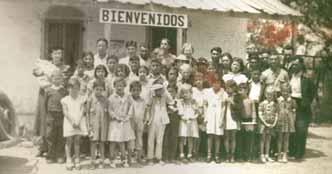
Morris says. Ozzie and Diana de la Cruz and Albert and Jessica Reyna will serve as core leaders for this new effort.
Mission MB Church has initiated a Spanish-language church plant, Iglesia Biblica de la Gracia Hermanos Menonitas, along what is known as the Seven-Mile Road in north Mission. This church began as a small outpost under a tent on an open lot, attended by a small group of people living nearby. Williams Velez is the church planter.
Grace Bible Church, Gettysburg, SD, has partnered with Mission MB as this project has gotten started. So the Project Team will include a representative from Grace Bible in addition to the Velezes and potential representatives from Mission MB, Mission USA and LAMB.
“That mix of people is exciting,” says Morris. “It means there will be a high-level support network provided to this new work.”
Moises Tagle asks that the larger USMB family pray for LAMB as they move forward into the next 75 years: that unity will abound, that more leaders will rise up and that God will provide the resources to plant new churches. —Myra Holmes
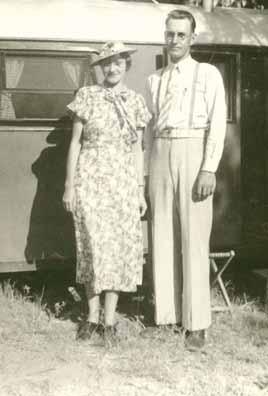
Mennonite Brethren mission work in South Texas began in Los Ebanos. Pictured is the first regular Sunday morning church group in that community. Among the early missionaries were Harry and Sarah Friesen who lived in a travel trailer as they traveled between Mission and Rio Grande City establishing Mennonite Brethren congregations in the area.
Books bless twice
Pastor finds God sufficient as he rebuilds library destroyed by fire
One night in May of 2011, Lowell and Patty Stutzman and the youngest of their children were awakened by a knock at the door. Someone passing by saw the roof was on fire.
“We called the fire department, and they came rather quickly, in 10 or 12 minutes, but they ran out of water numerous times,” says Stutzman, a Mennonite Brethen pastor in Grants Pass, Ore.
That night, the family watched as the top floor of their house burned and as water and smoke damaged the remainder of the home beyond repair. While the family salvaged things from the main floor, the upstairs was lost, including Stutzman’s library.
Decades in the ministerial field had resulted in more than 2,000 books. Commentaries, Bibles and an assortment of other volumes—many underlined and notated into heirloom status—were gone by morning.
“I had five Bibles and since the early ’70s had been keeping extensive notes in them, and my thought was I’d pass those on to my kids at my passing, and all of those were destroyed,” says Stutzman, pastor of New Hope Bible Church. “The only book that was saved was my most favorite commentary, a Believers Church Commentary on the Book of Mark. So I preached out of Mark for a while.”
Stutzman, who grew up in the Mennonite Church, now faced the challenge of reassembling portions of a collection that spanned from George R. Brunk to John E. Toews.Since the Bible commentary series had been produced by a predecessor agency of MennoMedia, he gave them a call. Unfortunately, the books were out of print.
But just across Main Street from the Newton, Kan., MennoMedia office sits Book ReViews, a nonprofit used-book store with an extensive collection of Mennonite titles. MennoMedia suggested Stutzman give Book ReViews volunteer manager Vern Preheim a call.
“He was very helpful in helping us locate some of those unique pieces that have to do with our Anabaptist history and church history and our Mennonite Brethren history,” Stutzman says.
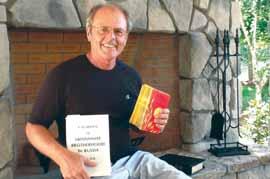
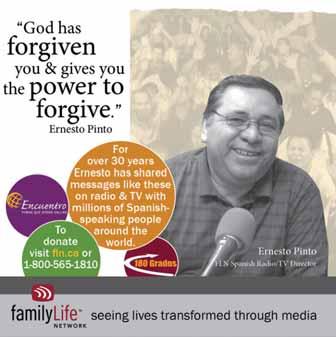
Lowell Stutzman holds used books that are the start of his rebuilt personal library.
PATTY STUTZMAN
Preheim was on the hunt, and the pile of books headed for Oregon began to grow, when a providential donation from just up the road in Hesston arrived at the store.
“A retired Mennonite Brethren pastor by the name of David Block died,” Preheim says. Block had served congregations in Shafter, Calif., Balko, Okla., Newton, Kan., Grant, Neb., and Congerville, Ill.
“His wife had passed away earlier,” says Preheim, “and the children had brought a lot of books to the store—I would say 60.”
Stutzman purchased most of the donation. Almost precisely one year after the fire, Book ReViews shipped the seeds of a new library—nearly 100 books.
“God’s timing in so many of our experiences in the last year has just been amazing,” Stutzman said. “(Preheim) had a bunch of stuff ready to box up, and he just added it to the order.”
Coming from one pastor to another by way of a used-book store, the books aren’t exactly in mint condition. Though Stutzman lost his notations and underlines, he has gained Block’s.
“It’s interesting to look at those notes and see his markings as well,” Stutzman said. “In a way it’s another kind of commentary, another way to see how God spoke into this man’s life. That’s what makes the Scriptures living; it finds us where we are.”
Scripture found him with that surviving commentary on Mark. It sparked a deeper reading of chapter seven, in which a woman begs Jesus to drive spirits out of her daughter.
Unlike other moments, Jesus does not heal the girl immediately, saying instead that he serves the Israelites first. The woman replies, “Even the dogs under the table eat the children’s
crumbs.” For such a reply, her child was healed.
“For me, that has been a huge piece: This woman says, ‘Whatever you give, Lord, that will be sufficient,’ ” Stutzman says. “God has been sufficient in this entire challenge.
“From my experience with going through this and still recovering from some of the challenges that are there, I’ve found my shepherd to be sufficient, that whatever he gives will be adequate for the day.”—Tim Huber, associate editor for Mennonite World Review. This article is reprinted with permission.

New from Herald Press
An Amish Alphabet
by Ingrid Hess
A is for Amish; B is for barn raising; C is for church. What is it like to be Amish? In this delightful and whimsical full-color book, author and illustrator Ingrid Hess offers an entertaining yet informative introduction to Amish faith and life. In a style that will capture the imaginations of children and adults alike, Hess invites readers to think about living out faith in new ways.
$17.99, Hardback
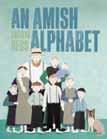

See more examples at www.MennoMedia.org/AnAmishAlphabet
Lowell Stutzman lost more than 2,000 books in a 2011 fire that destroyed part of his home.
PATTY STUTZMAN



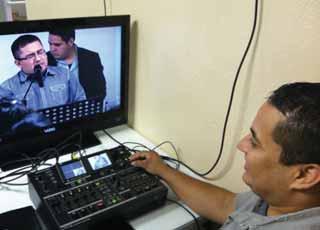













Don Morris Mission USA director
We’re going where?
When I have the opportunity to consult with church leadership groups about their purpose and vision strategy, I often use an airplane analogy to help them understand the importance of clear communication. Maybe I use this comparison because I fly so often.
The analogy goes like this: As we think about our church or church plant, imagine getting on an airplane to go somewhere. We know several people, but not everyone, boarding the big passenger plane. Most of us know the routine: people are stashing their luggage, finding their seats, getting to know the person they’re seated next to, putting their phone to sleep, etc.
For many on board, this is an exciting adventure. We’re going someplace! The plane fills, the flight attendant gives his mandatory safety speech and the plane backs out from the terminal. Soon, the plane taxis to the runway, ready for takeoff.
As the engines roar and the pilot eases his foot off the brake, the plane lurches forward and the people are mashed back into their seats— the plane is leaving the runway. Quickly the plane rises into the sky, “and the things on earth look strangely dim.” The clouds are beautiful, and everyone is enjoying the ride. There’s even free coffee and soft drinks. Everything is great.
Then the pilot comes on the intercom and says, “We’re so glad you’re aboard this flight to Detroit. Please sit back and relax.”
Dozens of denominational studies have confirmed that the average new church gains most of its new members (60–80%) from the ranks of people who are not attending any worshiping body, while churches over 10 to 15 years of age gain 80–90 percent of new members by transfer from other congregations.

People begin looking around. Detroit? “I thought we were headed for the outdoorsy city of Denver,” says one man. Someone else says loudly, “Hey, I thought this thing was headed for Philadelphia—you know, the City of Brotherly Love!” “No! I distinctly saw Redmond, Ore., on the flight marquee. I don’t want to go to a big, risky city like Detroit!” Pretty soon it’s chaos, as everyone has a different destination in mind.
At the first stopping point in St. Louis, several people get off the plane in disgust. One can be heard saying, “Can you believe this thing was headed for Detroit? I’m outta here. I’ll just find a bus back home.”
Back on the now half-empty plane, no one is happy except for the pilot who is oblivious to the rancor in the passenger area. The plane full of people, happy when they boarded and took off, is now filled with disgruntled, angry, disillusioned individuals—and all because of poor communication about the destination.
When we plant new churches, we’d better know where we’re going. We’d better have a plan. We’d better communicate that well—over and over and over to those who are joining in. Otherwise, chaos will reign. And this is true for existing churches as well. Headed somewhere new? Excited about a new vision, new direction? Communicate well before takeoff! And not just over the intercom.


This means the average new congregation will bring six to eight times more new people into the life of the body of Christ than an older congregation of the same size.
Source: Lyle Schaller, quoted in D. McGavran and G. Hunter, ChurchGrowth:StrategiesThatWork
Portland church plants new church
Trinity Church of Portland, Ore., our USMB church plant started September 2010, has recently announced that they are planting another church in the Portland area with Jared and Julia Pulliam as the church plant couple.
Jared joined the Trinity staff full time August 1 and has begun the process of forming a core team for the new plant, with an anticipated launch on Easter Sunday, 2013. Mission USA and the Pacific District Conference will be major partners in the new plant, providing both leadership support and funding.
The anticipated location for the church plant is the Sellwood-Moreland area. In fact, the Pulliams have already secured housing in that area of Portland.
“Sellwood fits us well, and we believe people in that part of Portland are hungry for truth. Our vision is much like Trinity’s, to teach deeply from the Word of God,” says Jared.
Pulliam is currently completing a seminary degree from Western Seminary in Portland, with an anticipated degree in biblical theological studies. He has also been under the tutelage of Trinity’s lead pastor, Art Azurdia.
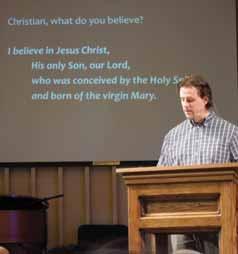
“Jared has prepared himself well for this new work,” Azurdia says.
Julia Pulliam, a nurse and mom to their three young children, is also a gifted facilitator, encourager and administrator. “They make a great team and have a great marriage,” says Don Morris, Mission USA director.
“We are already making an impact in Portland, and it’s going to continue to increase, Lord willing.”
Morris says, “I am personally thrilled that a church as young as Trinity, just two years old, is already in a position to plant another church. We anticipate that a few people will leave Trinity to join the Pulliams, giving them stability from the beginning. Trinity Church has said all along that they want to be all about doing whatever it takes to reach people, and this church plant is a passion-filled indicator that they mean it.”
Azurdia is also in the process of training several more young men for future church planting and/or pastoral ministry. “It’s part of what we do here at Trinity to prepare for future church planting—training up new leaders,” Azurdia says.
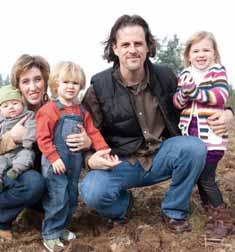
Jared and Julia Pulliam are the church plant couple for a second church plant in the Portland area.
Duane Ruth-Heffelbower

Planning for a disabled child’s adult life
What will happen to our child after we’re gone? This question plagues nearly every parent with an adult child who has a significant disability that prevents him or her from being financially self-supporting and/or living independently without supports.
For such situations, life planning is particularly important. Life planning means putting plans in place to provide for your dependents, including your adult child with a long-term disabling condition. As the parent of a dependent adult, it is natural that you are concerned about your child’s long-term well-being and future financial and emotional security.
Planning for the future of your dependent adult will involve interacting with the legal system to write a will, create a trust and to create a guardianship or nominate a conservator. Planning will also entail setting up informal friend and advocacy relationships through your family, friends and congregation.
Because unique considerations are involved, it is especially important to include anyone who is likely to carry a long-term responsibility for the person with the disability. Think creatively about who might welcome the invitation to be a long-term friend and support of your family member.
Friends. In our increasingly mobile society, many rely on friends for roles that family played in earlier generations. Consider who among your circle of friends and acquaintances has taken a special interest in your dependent family member. Recognize that the invitation to be a long-term friend and support to your family member is an opportunity for connection that will benefit both parties in the friendship.
Your church. If members of your church play a significant role in the life of your dependent adult, it would be beneficial to include them in the life planning process. The church has a responsibility to ensure that the dependent person has lifetime of emotional and spiritual support and care. This is part of our mutual accountability as members of the body of Christ.
From After We’re Gone by Duane Ruth-Heffelbower. Copyright © 2011 by MennoMedia, Harrisonburg, VA. Used by permission. Readers looking for additional resources are encouraged to contact Anabaptist Disabilities Network (ADNet).

Life planning does well to include the following people: The dependent person. Though it may not be appropriate in every situation, it is generally best to include the dependent person to the extent he or she is able to be involved. If the dependent person has a guardian or conservator, that person will need to be included as well.

Siblings. Estate and life planning should be a family process. This helps facilitate the open expression of opinions and feelings about future expectations. Sibling participation in planning also helps avoid surprises for the brothers and sisters concerning plans for their dependent sibling after the death of their parents. Thoughtful and sensitive planning by parents will not only discourage disputes after their death, but in many cases, it might become a final and enduring expression of their love. In spite of— and perhaps because of—our reluctance to talk about death, life planning is an important activity for the whole family.

Extended family. Sometimes the emotional or geographical closeness of extended family members (uncles, aunts, cousins, etc.) makes it important to include them in the life planning process. In some cases, they may carry specific roles in the future as they help to maintain and care for the dependent family member.





Tim Neufeld
Spinning through “Vertigo”
Many of us have faced uncertain moments in life. In a post-9/11 world, the insecure culture that so quickly engulfs our souls has left us distrustful of politics, unsure of the economy, cynical of science and skeptical of religion. Nothing seems permanent or stable anymore.
Through their song “Vertigo,” the rock band U2 has helped me reflect on life’s instability. In the music video for this song, band members spiral up and down, trying to hold their ground on wildly undulating rings of an enormous bull’s-eye, while being blasted with gale-force winds in a featureless desert.
Lead singer Bono cries out, “I’m at a place called vertigo,” to which guitarist Edge responds, “Donde esta?” (loosely meaning, “Where are you?”). The song offers both confession and questions.
At one point the lyrics say:
“I can’t stand the beats I’m asking for the check
Girl with crimson nails
Has Jesus ‘round her neck”
Bono has said “Vertigo” is a commentary on the culture in which we live: “I was thinking about this awful nightclub. You’re supposed to be having a great time…. It’s that woozy, sick feeling of realizing that here we are, drinking, eating, polluting, robbing ourselves to death. And in the middle of the club, there’s this girl. She has a cross around her neck, and the character in (the song) stares at the cross just to steady himself.”
In the midst of chaos, says Bono, the image of Jesus grounds us; it’s here that we find hope and meaning. In this moment love breaks through, teaching us, stabilizing us. In the song’s final lyric, Bono declares, “Your love is teaching me how to kneel.”
I had one of those earthshaking moments recently. I was driving my family on a rural road when an on-

coming car suddenly crossed into our lane. At freeway speed we slammed into the passenger side of the vehicle, pole-vaulting our car into the air. Spinning around, we landed upright with only abrasions and bruises. Sadly, one person in the other car died and another suffered critical injuries.
I will never forget the explosion of air bags, the screeching of brakes and seeing the world whirling around through the window behind my wife. It was a life-altering experience. The physical pain of whiplash was equal to the emotional grief we faced. I was confronted by life’s fragile and tenuous nature.
There are collisions of the heart as well as collisions of metal and machine. For some, vertigo comes through a lost relationship, a broken marriage or the death of a loved one. Others might be knocked off balance by loss of a job, betrayal of a friend or serious illness. Sooner or later, everyone feels the ground shift beneath their feet.
Our car accident rocked me in a way that I could never have imagined, but through the chaos and uncertainty, Jesus has grounded me. His cross and empty tomb provide meaning and hope. His love is teaching me how to kneel with gratitude and love for a God that sees me through the spinning and slipping and colliding.
I’ve been to a place called vertigo—more than once—and I know I’ll be there again. Donde esta?
Tim Neufeld is assistant professor of Contemporary Christian Ministries at Fresno Pacific University. He teaches a class called “Theology, Culture and U2” and writes for the website www.atu2.com, usually on the theme of theology and culture. For more information about U2’s Christian influence, see his personal blog at www.timneufeld.blogs.com and select the “U2 & Theology” category.
Looking for words of wisdom as you strive to make an informed decision on Election Day that is grounded in your Christian faith?

Election e-book
How to Pick a President, a recent addition to Christianity Today’s Essentials electronic book series, offers the best articles on the topic published by CT. “This e-book won’t tell you who to vote for or where you should stand on the issues,” says the publisher. “But the essays and interviews…will help you think more wisely and Christianly about elections, politics and the American presidency.” This resource includes a discussion guide to help groups talk through the issues. To order: www.ctebooks.com/ct/how-pick-president

BAPTISM/MEMBERSHIP
Kyle, Kylee and Kayla Wadkins, Kelsey Newton and R.C. Rea were baptized Aug. 12 at Martin Box MB Church, Marshall, Ark.
Jennifer Scales was baptized July 15 and received as a member of Shafter (Calif.) MB Church
Carson Schellenberg, Michael Warkentin, Rick Bergen, Robby Brandt, Cody Ensz, Greg Lewis, Holly Parento and Nicholas Szpor were baptized and received as members of Reedley (Calif.) MB Church July 8. Donald and Marie Faul, Nora Lewis, Josh Merritt, Ella Penner, Herbert Penner, Vernon and JoElla Reimer, Amanda Renney, Harold and Marjorie Saltzman, Andrew Shinn, Carol Wallace and Barbara Winslow were also received as members. John and Glenna Lundberg were received as members Aug. 5.
Steve Quinsey was baptized Aug. 26 at Good News Fellowship, Ferndale, Wash
Daryl Andrade, Sierra Andrade, Alicia Avila, Juan Martinez, Peter and Lydia Santana, Isabella Santana, Jesse Santana and Sammy Santana were baptized Aug. 26 at Grace Community Church, Sanger, Calif.
The following were baptized Aug. 12 at First MB Church, Wichita, Kan.: James Auchterlonie, Aaron Bloom, Jessica Bloom, Trevor Farney, Ella Farney, Ethan Farney, Lucas Farney, Noah Farney, Bruce Fischer, Maddie Gallagher, Greyson Heckman, Amanda Jantz, Christian Jantz, Karli Kubik, Amanda Lolling, Brenda Lolling, TJ Lolling, Tatum Nevins, Kate Reimer, Curt Renard, Sandra Renard, Marisa Smith, Karen Stewart and Hannah Terrell. Bruce Lolling, David and Grace Bloom, Nathan and Cherylen Gift, Tim and Tammy Barney, Richard and Lauren Heaston, Staci Fischer, Kay Holdeman, Dan and Michelle Ackland, Tiffani Pauls and Brandon Miller were received as members.
Jonathan Regier, Boston Terrell and Karsyn Terrell were baptized July 29 at Pine Acres Church, Weatherford, Okla. David and Brenda Warkentin were received as members. Harrison Penner was baptized June 24.
Charlotte Archuleta, Damian Barcelon, Connie Davis, Mary Hill and Paula Vigil were baptized and received as members July 1 at Garden Park Church, Denver, Colo
Marlin and Michelle Hiett, Marissa Hiett and Miranda Hiett were received as members of Fairview (Okla.) MB Church Aug. 26.
The following were baptized Aug. 19 at South Mountain Community Church, Draper, Utah:
Frank Madsen, Britton Madsen, Derek Nilsen, Mark Hollandsworth, Kelly Hollandsworth, Brittany Peck, Andrew Rymer, Kate Rymer, Christiana Colton, Sarah Liebrecht, Armani Montgomery, Kaycee Wartman, Jayde Gardner, Hunter Nilsen, Kayla Rockwell, Tanner Raimer, Riley Kraft, Shelby Harp, Tiffany Baker and Rick Morris.
Pat Hughes, Heather Gearey, Jordyn Kary, Tristen Kary and Isabella Kary were baptized July 15 at Christ Community Church, Sioux Falls, SD
Rosedale Bible Church, Bakersfield, Calif., recently received Craig Brady, Harry and Lorene Courtneay, Frieda Driskill, Tracy and Charlene Edwards, Delanie Shepherd, Joyce Stokes and Ricky Stokes as new members.
Rebekah Cartney, Andrew Ens, Libby Friesen, Abby Friesen, Lily Funk, Callie Gerbrandt, Samera Hall, Ivory Lacina, Faith Moore, Abigail Stutzman, Elaine Williams and Erin Williams were baptized June 24 at Community Bible Church, Olathe, Kan
Mark Klumph, Susan Linderman and Katelyn Duba were received July 1 as members of Bethesda MB Church, Huron, SD.
WORKERS
Dick Nickel resigned as pastor of Grace Bible Church, Gettysburg, SD in June.
Daniel Barrett is the new pastor of administration at Heritage Bible Church, Bakersfield, Calif. He fills a dual role with the church and Heritage Christian School, which meets on the church campus.
Daniel Clubb and Trevor Lee of Shorelife Community Church, Capitola, Calif., were ordained Sept. 23.
Stephanie Harris and Brittany Williams have resigned their part-time children’s ministry positions at Pine Acres Church, Weatherford, Okla
Steve Johnson has resigned as part-time pastor at Garden Park Church, Denver, Colo., effective Dec. 31.
Jenny Wall concluded her ministry as director of kids’ ministries at First MB Church, Wichita, Kan., at the end of August.
Rachel Ediger served as a summer intern at Enid (Okla.) MB Church
Henry Dick retired Aug. 31 from the pastoral staff of Dinuba (Calif.) MB Church
DEATHS
Flaming, Bertha, 91, Corn, Okla., member of Corn MB Church, died Aug. 13, 2012. Par-

Wrestling as outreach
In a unique twist on summer children’s ministry, Shafter (Calif.) MB Church offers a wrestling camp for children in first through sixth grade. Wrestling is a “natural fit,” says Pastor Pat Coyle, because it’s a popular sport in the area and because Coyle is well qualified as a coach in the sport, having competed in both high school and college and coached at university, junior high and high school levels. The camp, which ran Aug. 6-10 this year, grows each year, from about 25 wrestlers the first year four years ago to nearly 50 this year. To help the camp run smoothly and safely for so many participants, high school wrestlers serve as assistant coaches. Each camp session includes stretching, warm-up drills and technique, snacks and a devotional, followed by wrestling matches and games. The theme this year was “Built Faith Tough,” based on the character of Nehemiah. The week ends with a Friday evening exhibition match, dessert and guest speaker. “The camp has given us a great contact with the community over the years,” says Coyle. “We see some of the kids attending our AWANA club during the school year and vacation Bible school in the summer.”
Three-way tie
This summer, a two-way partnership became a trio. Grace Bible Church, Gettysburg, SD, and Mission (Texas) MB Church have been building a sisterchurch relationship for several years. (See “Odd couple,” Aug/Sept 2010 CL.) When a Gettsyburg team traveled to Mission June 22-July 2, they were joined by a group from Iglesia Agua Viva, a Spanish-language MB congregation in Omaha, Neb. The three churches cooperated to lead vacation Bible school and help a local homeowner with repairs. John Langer, team leader from Gettysburg, says the churches worked well together and built relationships that promise to continue through a fall youth retreat in Omaha, a future vacation Bible school in Omaha and future outreach in Mission.
Summer club
North Fresno (Calif.) MB Church reached out this summer through Summer Adventure Club. Pre-teens from the community came to the church Tuesdays and Thursdays for activities ranging from music lessons and reading, martial arts, quilting and rocket cars. Fridays featured field trips. On Saturdays, participants volunteered at a local senior center. “The central vision is to provide opportunities for positive relationships through which God can bring healing and restoration,” writes Phil Schmidt, SAC director, in the NFC newsletter.

ents: John and Katherine (Neufeldt) Thiessen. Spouse: Roy H. Flaming, deceased. Children: Kay Kosanke, John, Steve; eight grandchildren; 14 great-grandchildren. Funk, Jason, 59, Las Vegas, Nev., died Aug. 2, 2012. Parents: Loyal and Nancy Funk. Heinrichs, Viola, 92, Weatherford, Okla., member of Corn (Okla.) MB Church, died Aug. 14, 2012. Parents: Henry H. and Anna (Kroeker) Flaming. Spouse: Paul Heinrichs, deceased. Children: Betty, Lyle, Jay; five grandchildren; six great-grandchildren.
Janzen, Orlando “Lon”, 79, Reedley, Calif., died July 26, 2012. Parents: Henry “Hank” and Elizabeth (Fast) Janzen. Spouse: Mame Wedel. Children: Randy, Vonnie Unruh, Brenda Luskey; seven grandchildren; one great-grandchild.
Schmidt, Kenneth Lloyd, 77, Broken Arrow, Okla., member of Fairview MB Church, died Aug. 13, 2012. Parents: Benjamin Tobias and Martha Schmidt. Spouse: Carol Jantz. Children: Kenneth Jr., Greg, Steve; 12 grandchildren; seven great-grandchildren.
Schroeder, Opal Irene, 90, Fairview, Okla., of Fairview MB Church, died July 5, 2012. Parents: John and Mae Lee. Spouse: August Schroeder, deceased. Children: Patricia Germany, Jim; eight grandchildren; 21 greatgrandchildren; one great-great-grandchild. Willems, Esther, 92, Reedley, Calif., member of Reedley MB Church, died June 14, 2012. Parents: George D. and Anna (Block) Willems.
reaching
DISCIPLESHIP
in
Community Bible Church, Olathe, Kan., offered a two-day spiritual gifts seminar Aug. 17-18.
One result of vacation Bible school at Corn (Okla.) MB Church this summer was an ongoing Bible study with preteen girls from the community.
South Mountain Community Church, Draper, Utah, hosted a parenting conference June 30 titled, “The Danger of Raising Nice Kids: Preparing our Children to Change the World.” Timothy Smith, family coach, author and president of Life Skills for American Families, was the speaker.
Boone (NC) MB Church hosted a series of revival services June 3-6. Guest speakers were pastors of nearby MB churches: James Wilfong, West End MB Church, Lenoir, NC; Terry Hunt, The Life Center, Lenoir, NC; Mike
Mathes, Beech Bottom MB Church, Newland, NC; and Fred Howell, Laytown MB Church, Ferguson, NC.
Blossom Valley Bible Church, San Jose, Calif., offered a healthy eating class on Sunday mornings June 3-July 1.
Girls age 10-12 at Belleview Community Church, Littleton, Colo., met twice a month during the summer to develop friendships and faith. The lunchtime meetings were called “Faith Girlz Rock.”
This summer Stony Brook Church, Omaha, Neb., offered “Israel for Dummies,” a midweek class to help participants familiarize themselves with the Old Testament.
Each Tuesday this summer, high school youth from Pine Acres Church, Weatherford, Okla., met to study Scripture together over a brown bag lunch. The students explored passages from Philippians to coordinate with the summer sermon series.
Ethiopian Evangelical Church, Aurora, Colo., held a prayer conference July 6-7, followed by a week of prayer and fasting.
FELLOWSHIP
Pine Acres Church, Weatherford, Okla., showed the movie, “The Grace Card,” Sept. 2 as a kickoff to fall activities.
College Community Church MB, Clovis, Calif., held an all-church campout Aug. 2426.
Children of all ages and their parents were invited to Shorelife Community Church, Capitola, Calif., each Friday this summer for lunch and fun activities.
Men from Shadow Mountain Church, West Jordan, Utah, enjoyed a retreat Aug. 24-26.
Seventh and eighth graders at Corn (Okla.) MB Church participated Aug. 22 in the “Slipn-Slide Summer Olympics,” a watery take on the 2012 Olympics.
The women of the Amor y Fe congregation of Butler Church, Fresno, Calif., hosted a fitness event Aug. 17, featuring a devotional, recipe swap and Zumba, a popular Latinbased fitness workout.
Mountain View Community Church, Fresno, Calif., hosted a free movie night and back to school party for families in their community Aug. 17.
Families with young children from College Community Church MB, Clovis, Calif., marked the beginning of a new school year with a swimming party Aug. 18.
About 100 adults, youth and children from both the English and Spanish-language services of Grace Community Church, Sanger, Calif., joined for an all-church family camp Aug. 3-5. The theme for the weekend was “Family of God” with separate English and Spanish sessions but combined mealtimes and a joint communion service.
LOCALLY
Volunteers from The Bridge Bible Church, Bakersfield, Calif., distributed groceries and prayed for seniors in an outreach effort Aug. 25.
Aug. 26 was the First Annual Stony Brook Community Concert, hosted by Stony Brook Church, Millard, Neb., in conjunction with the community’s “Millard Days.” The concert included three live bands, bounce houses and free hot dogs.
Attendees of North Oak Community Church, Hays, Kan., “sponsor” college students from nearby Fort Hays State University for the school year by inviting them to a meal once a month.
Volunteers from Neighborhood Church, Visalia, Calif., serve as “lunch buddies” to local elementary school students during the school year. They eat lunch with the student weekly, then play games, talk and mentor informally.
New Life Church, Ulysses, Kan., participated in a local parade July 14. More than 30 New Life volunteers wore matching church T-shirts with the tagline, “a place your heart can call home” and handed out key chains, candy and church information to an estimated 500 people.
Shorelife Community Church, Capitola, Calif., once again sponsored the Wharf-to-Wharf race that routes through their community July 22.
The church donated some 15,000 water bottles printed with the church logo and John 7:37.
An estimated 250-300 neighbors attended a July block party hosted by North Park Community Church, Eugene, Ore.
Men from South Mountain Community Church, Draper, Utah, built a yurt at a nearby Christian retreat center Sept. 26-30. Each participant was asked to raise $1,000 to help fund the cost of the portable wood-framed structure.
College Community Church MB, Clovis, Calif., organized a summer meal program for children from the surrounding neighborhood and from the Head Start program, serving breakfast and lunch Monday through Friday, as well as leading sports, crafts and games twice a week.
Shadow Lake Community Church, Papillion, Neb., hosted a booth and bounce house at “Papio Days,” a community celebration June 14-17. The church also had a float in the parade and held an outdoor worship service to close the weekend.
GLOBALLY
A team from Community Bible Church, Olathe, Kan., plans to travel to Joplin, Mo., during the week of Oct. 21 to do tornado cleanup with Mennonite Disaster Service.
Corn (Okla.) MB Church sent a team of youth and sponsors to Kentucky July 20-30 to serve with Appalachian Service Project.
Reedley (Calif.) MB Church sent donated coats to Mennonite Brethren missionaries in Guadalajara, Mexico, to be used in ministry to the poor.
Shafter (Calif.) MB Church sent a team to Germany July 20-Aug. 5.
North Fresno (Calif.) MB Church sent a team to Portugal July 17-31.
Teams from Bethesda MB Church, Huron, SD, served in inner-city Chicago June 23-July 3 and at the Lakota Gospel Church, Porcupine, SD, June 19-21.
Fairview (Okla.) MB Church collected new and used shoes to send with Uganda Team Hope to give to children in need while on mission there July 15-31.
CLEARINGHOUSE
Local Church: Solo Pastor: Bethel MB Church of Yale, SD, is accepting resumes for the position of solo pastor. For more information, contact Pastoral Committee Chairman David Mendel at 605-635-6554 or djmendel@nvc.net.
Local Church: Senior Pastor: Garden Valley Church, a Mennonite Brethren church in Garden City, Kan., is seeking a senior pastor to lead a group of approximately 150 believers. Send resumes and inquires to: Search Committee, c/o Garden Valley Church, 1701 N. 3rd Street, Garden City, KS 67846.
Local Church: Pastor of Worship: Belleview Community Church, Littleton, Colo., is seeking a part-time pastor of worship to partner with the senior
Study Conference: The USMB Board of Faith and Life is hosting a Study Conference to be held Jan. 24-26, 2013, in Phoenix, Ariz. The conference will focus on Confession of Faith Article XII (The Society and State) and Ar-
Statement of ownership, management and circulation
Publication title: Christian Leader. Publication number: 0009-5419. Filing date:09/06/12. Issue frequency: bimonthly. Number of issues published annually: 6. Annual subscription price: $10. Complete mailing address of known office of publication: 107 N. Main, Box 155, Hillsboro, KS 67063. Complete mailing address of headquarters or general business office of publisher: same. Full names and complete mailing address of publisher, editor and managing editor: Publisher: U.S. Conference of MB Churches, 7348 W 21st Suite 115, Wichita, KS 67205; Editor: Connie Faber, 107 N. Main, Box 155, Hillsboro, KS 67063. Managing editor: none. Owner: U.S. Conference of MB Churches, 7348 W 21st Suite 115, Wichita, KS 67205. Known bondholders, mortgagees and other security holders owning or holding 1%or more of total amount of bonds, mortgages or other securities: none. Tax status has not changed during proceeding 12 months. Issue date for circulation data: Oct/Nov 2012. Extent and nature of circulation: the first number represents the average number of copies of each issue during the proceeding 12 months, the number in parentheses is the number of copies of a single issue (Aug/Sept. 2012) published nearest the filing date. (a) Total number of copies: 9,361 (9,291) (b) Paid/requested circulation: 1) paid/requested outside county mail subscriptions: 8,400 (8,353) 2) Paid in-county subscriptions: 551 (546) 3) Sales through dealers and carriers, street vendors, counter sales and other non-USPS paid distribution: 0 (0) 4) Other classes mailed through the USPS: 233 (234) (c) Total paid and/or requested circulation: 9,197 (9,133) (d) Free or nominal rate distribution: 1) Free or nominal rate outside county copies 0 (0) 2) Free or nominal rate incounty copies (0) 0 3) free or nominal rate copies mailed at other classes through the USPS 14 (8) 4) free or nominal rate distribution outside the mail 0 (0) (e) Total free or nominal rate distribution outside the mail: 14 (8) (f) Total distribution: 9,211 (9,141) (g) Copies not distributed: 150 (150) (h) Total: 9,361 (9,291) (i)Percent paid and/or requested circulation: 99.84% (99.91%). I certify that all information furnished is true and complete. I understand that anyone who furnishes false or misleading information on this form or who omits material or information requested on the form may be subject to criminal sanctions and/or civil sanctions. Signed: Connie Faber
pastor to plan music, worship and implement Sunday morning services and special occasions and to train volunteers serving in this area and to take the point in leading a contemporary worship band. If interested send cover letter and resume to Mike Andrews at mandrews@belleviewchurch.org.
Local Church: Family Pastor: Belleview Community Church, Littleton, Colo., is searching for a part-time family pastor to provide leadership, oversight and an integrated approach to three areas: children (infants through 6th grade), youth (junior and senior high) and parenting. If interested, send cover letter and resume to Mike Andrews at mandrews@belleviewchurch.org.
ticle XIII (Peace and Nonresistance). All pastors, church leaders and others are invited to attend. Registration information is available at www.usmb.org/study-conference; registration deadline is Jan. 11, 2013.
Job Openings Event






































LEAVING A LEGACY FOR THE NEXT GENERATION OF MBs
Many of us would say that we wish we had the power to make a difference. Yet together, as a Mennonite Brethren family, we are making a difference. Lives are being changed in Sioux Falls, Salt Lake City, Phoenix, Fresno and yes, even in Hillsboro, Corn, Reedley and elsewhere. Together, we are making a difference.


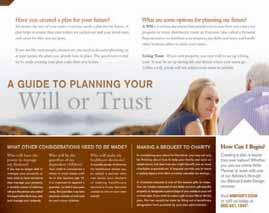

You also have the power to make a tremendous difference through a significant act of generosity, expressed through your will or trust. At death, many of us have the opportunity to make our largest single gift ever to support Kingdom work. Leaving a gift to USMB would make a significant difference in the lives of future Mennonite Brethren.
You have the power to make a difference… WILL POWER. Would you consider leaving a legacy for the next generation of MBs? Now that’s WILL POWER!
For a free guide to preparing a will or trust, or to learn about other planned giving options, contact a Planned Giving Advisor at 800.551.1547 or email by visiting MBFOUNDATION.COM/STAFF.

VAUGHN & TARYN JOST
DENVER CHURCH PLANTERS
YOUTH CONFERENCE SAN ANTONIO, TEXAS
SOUTH MOUNTAIN COMMUNITY CHURCH DRAPER, UTAH
